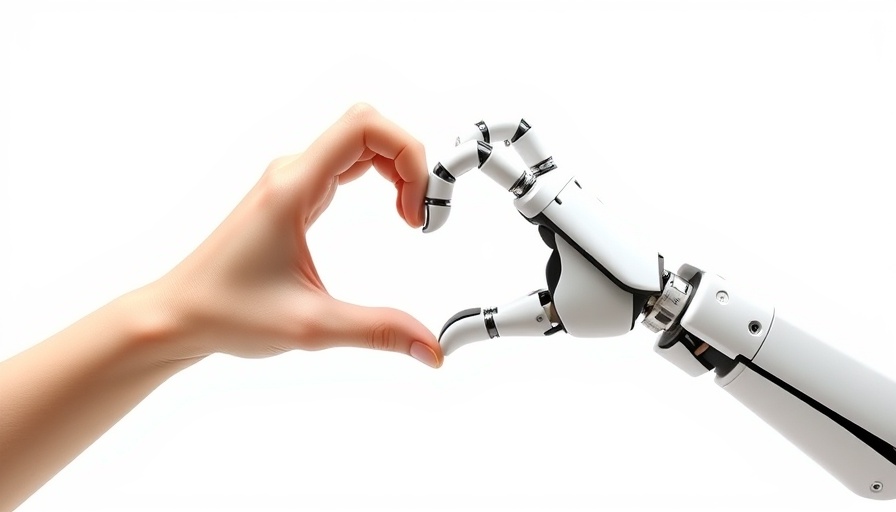
Exploring Emotional Connections with AI
As technology continues to evolve, artificial intelligence (AI) is playing an increasingly prominent role in our daily lives. Interestingly, a recent study from Anthropic revealed that only 2.9% of users engage with AI for emotional support, such as in therapeutic contexts. Although initial interactions saw users treating AI like a therapist, the future holds vast potential for lay users and emotional connections with these technologies.
The Hybrid Role of AI in Everyday Emotional Support
A significant portion of AI engagement revolves around "ersatz therapy," where users approach AI for comfort rather than formal therapy. People often find solace in simply expressing their thoughts and anxieties, from feelings of work-related stress to existential dilemmas. While AI cannot provide medical advice and should not replace professional guidance, it offers a non-judgmental space for people to vent their distress. This form of interaction highlights how AI could supplement emotional well-being—providing a platform for vulnerability.
Improvised Emotional Rescues and the AI's Role
In the middle of the night, when feelings of overwhelm might keep someone awake, AI apps can serve as emotional lifelines. The option to communicate with an AI allows users to process their feelings and receive gentle support in a private manner. For example, users may type messages like, "I feel overwhelmed" and receive comforting responses or simple breathing techniques that help relieve anxiety. In this way, AI acts as a kind of 'emotional emergency exit'—a resource available whenever needed, often far more accessible than reaching out to friends or family.
The Collaboration of AI and Human Decision-Making
Decision-making can be one of the most taxing mental tasks, especially for busy professionals. Many individuals are increasingly leveraging AI's analytical prowess to navigate tricky choices. AI can generate possible outcomes, thereby reducing the burden of indecision and providing meaningful insights. This capability makes it an invaluable tool for CEOs and business managers looking to streamline their decision-making processes.
Future Perspectives: What Lies Ahead for AI in Emotional Well-Being
Considering the rapid pace at which AI technology is evolving, the landscape for emotional support provided by AI is likely to change significantly in the near future. With more sophisticated algorithms and enhanced emotional intelligence capabilities, AI tools could soon become not just listeners but proactive partners in managing emotional health. For professionals navigating stressors in tech-driven environments, AI could evolve into an indispensable ally.
Why Embracing AI for Support is Valuable
Many business professionals grappling with stress or pressures can benefit from the support that AI offers. Employing AI in everyday decision-making situations can lead to higher efficiency and productivity, allowing individuals to concentrate on core responsibilities without the mental clutter.
Taking Action: Make AI Your Ally
With the vast possibilities AI holds for emotional support and improved decision-making, now is the time to consider how these technologies can integrate into your professional and personal life. As we embrace AI's potential, we empower ourselves to navigate complex landscapes with greater ease and resilience. By incorporating AI into your emotional toolkit, you not only enhance your productivity but also cultivate emotional well-being.
As technology progresses, staying informed about these innovations will allow you to leverage AI to your advantage. Explore different AI tools and find the ones that align with your personal or professional goals!
 Add Row
Add Row  Add
Add 




Write A Comment